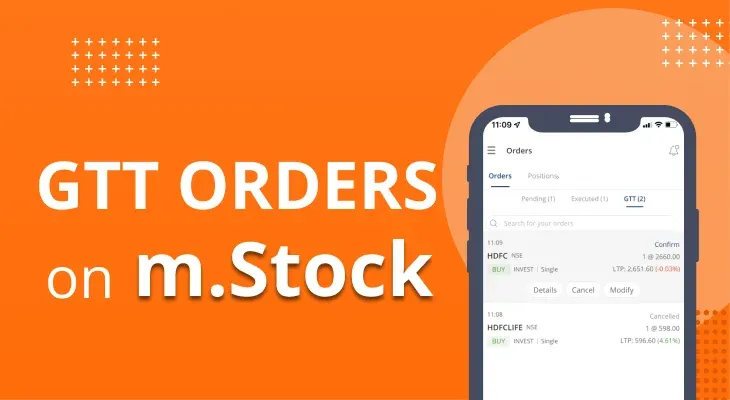
Table of content
What are SEBI Turnover Charges?
Whenever you purchase or sell securities through a stock exchange, your stockbroker levies a set of charges. This includes brokerage, securities transaction tax (STT), GST, stamp duty and SEBI turnover charges, among others.
Of the different charges you’re liable to pay, the SEBI turnover fees are what we’re going to be looking at in this article. Here’s a comprehensive guide on what these charges are, why they’re levied and the amount you’re liable to pay on a securities transaction.
What is SEBI?
The Securities and Exchange Board of India or SEBI is an autonomous body that’s responsible for monitoring the Indian financial markets. The entity oversees and regulates the securities markets to ensure that they operate in a fair and unbiased manner.
In addition to the regulatory aspect, SEBI also frames acts, rules and regulations that market participants need to follow. Another major responsibility of the regulatory authority lies in protecting the interests of investors and promoting the development of the market through innovation.
What are SEBI Turnover Charges?
As the name implies, SEBI turnover charges are the fees that the Securities and Exchange Board of India levies on all purchase and sale transactions made through a stock exchange. The rate of fee applicable on a transaction is often expressed as a percentage of the total trade value (turnover) and varies depending on whether you purchase or sell debt instruments or other securities.
Why Does SEBI Collect Turnover Charges?
As an investor, you need to understand why the Securities and Exchange Board of India levies the SEBI turnover charges on all transactions made through a stock exchange. Here’s a brief overview of the primary reason for the regulatory authority levying the charge.
The roles, responsibilities and functions of SEBI are critical for the proper and efficient functioning of the capital markets. The entity requires significant manpower and funds to effectively carry out its various functions and regulatory duties.
The levy of the turnover fee on all purchase and sale transactions that occur on a stock exchange is one of the ways through which the regulatory authority gains access to the funds it requires for sustaining its operations.
What are the Current SEBI Turnover Charges?
The rate at which SEBI levies turnover charges on stock exchange transactions varies depending on whether you buy or sell debt instruments or other securities. Here’s a closer look.
Turnover Charges For Debt Securities
If you purchase or sell debt securities like bonds, non-convertible debentures (NCDs) or other fixed-income securities, you will be liable to pay 0.000025% on the total trade value (turnover) as SEBI turnover charges. This effectively means that for every Rs. 1 crore of turnover, you would have to pay Rs. 2.5 as turnover fees.
Turnover Charges For All Other Securities
For all other securities other than debt instruments, you will be liable to pay 0.0001% of the total trade value (turnover) as SEBI turnover fees. This means that for every Rs. 1 crore of turnover, the charges would be Rs. 10. The list of securities for which this rate is applicable includes equity shares, equity derivative contracts, commodity derivative contracts and currency derivative contracts, among others.
How to Calculate SEBI Turnover Charges?
Here’s a hypothetical example to help you understand how the SEBI turnover charges are calculated.
Assume you wish to purchase 1,000 shares of a company listed on the Bombay Stock Exchange. The current trading price of the stock is Rs. 250 per share. The total turnover (trade value) in this case comes up to Rs. 2,50,000. Since you’re purchasing equity shares, the SEBI turnover fees would be 0.0001% of the turnover, which would be Rs. 0.25 (Rs. 2,50,000 x 0.0001%).
Now, let's say you sell the 1,000 shares you hold on the market at Rs. 300 per share. You will have to pay Rs. 0.3 [(1,000 shares x Rs. 300) x 0.0001%] as SEBI turnover charges. The total fee that you pay for this particular round trade is Rs. 0.55 (Rs. 0.25 + Rs. 0.30).
How are the SEBI Turnover Charges Collected?
Although the turnover charges are imposed by SEBI, it is the stockbrokers who collect them from their customers. The collected turnover charges are then deposited with the respective stock exchange, which then remits the same to the Securities and Exchange Board of India on a monthly basis.
Since the total turnover from a stockbroker varies depending on the volume of transactions that their customers execute, the amount of turnover charges will also differ from one month to another.
In addition to collecting turnover fees from investors and traders through their stockbrokers, the SEBI also collects them from other market participants like mutual fund houses and clearing corporations.
In the case of mutual fund houses, the SEBI turnover fees are levied based on the annual average of Assets Under Management (AUM). In the case of clearing corporations, the SEBI collects a fixed amount annually as turnover charges.
Conclusion
Although the SEBI turnover charges are usually negligible, it is crucial for you to know what and why it is levied. Collection of these charges from market participants is vital for the proper functioning of the regulatory authority since they often serve as the primary mode of funding for the entity


